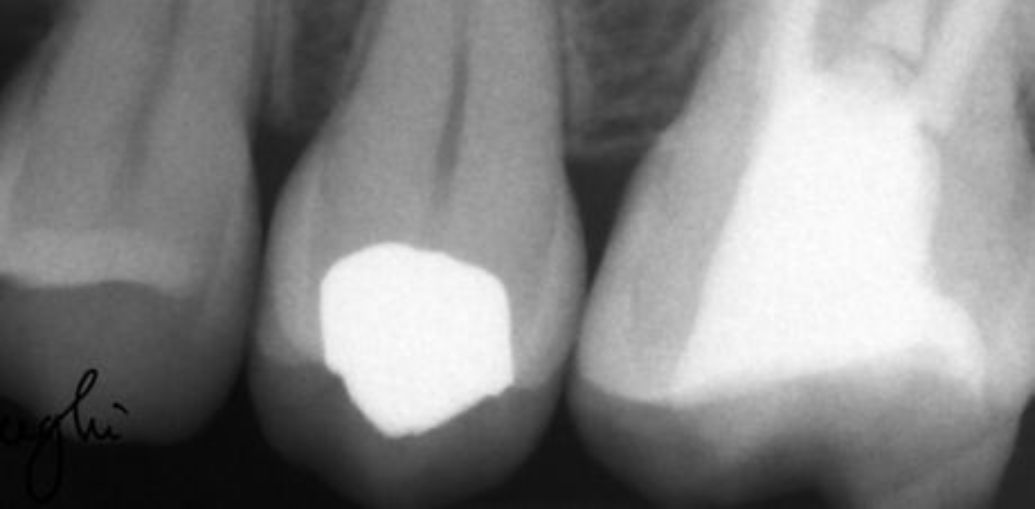
There is no real substitute for your own tooth in terms of health and investment.
A root canal treatment is needed when there is inflammation or infection in the roots of a tooth. During the treatment, the pulp inside the tooth will be removed, the root canal space will be cleaned, disinfected and shaped. Finally, a filling will be placed to seal the space.
Sometimes endodontic therapy is completed in one visit, but often (due to infection and/or complications) two or three appointments may be needed.
During the root canal treatment, we are trying to treat a biological problem mechanically/chemically, so a tooth that has undergone endodontic therapy can occasionally fail. Root canal treatment is performed because the soft inner tissue of the tooth called the pulp, has been damaged. As with any other part of the body, treatments can be unsuccessful; sometimes for no known reason, the hard and soft tissues surrounding the tooth may simply fail to heal.
However, with proper restoration (Crown, Onlay) and care the tooth may last a lifetime.
With the use of modern techniques, root canal treatment typically involves little or no discomfort. Often there is pain before the treatment and endodontic therapy provides relief.
Cleaning the root canal system may cause some inflammation of the surrounding tissues, but the popular brands of painkillers should alleviate the discomfort. The mild symptoms can last for up to a week after the root filling has been carried out and are not unusual.
Discomfort, post root canal treatment, is common and in no way does it affect or provide a prediction for the eventual outcome of the treatment. Do not be alarmed if you get pain post-root canal treatment. It will almost always eventually subside.
If postoperative pain persists or increases in severity, please call the practice.
Extraction is the only alternative; unless the tooth is replaced, adjoining teeth will shift, interfering with biting and chewing. Loss of a tooth can lead to periodontal disease and loss of additional teeth. Replacing a tooth with an artificial one requires surgery or dental procedures on adjacent healthy teeth.
Occasionally a tooth cannot be saved. Endodontic treatment can only be performed if the root canals are accessible and can be adequately cleaned and filled. A tooth must also have sufficient bone support and if the restorability is feasible.
The thought of root canal therapy may make you frightened or anxious if you aren’t familiar with the procedure. There are common misconceptions that endodontic treatments such as root canals, cause pain and should be avoided at all costs. The exact opposite is true. The pain, inconvenience and cost of avoiding endodontic treatment in favour of tooth extraction or a wait-and-see approach can be easily avoided. The longer you postpone treatment the more you risk the chance to save your tooth. Take the time to read the information on our website to find out how we can save teeth with minimal time and discomfort. Then address any remaining concerns or questions with us at Burgate Dental Practice & Implant Centre.
Back to Blog